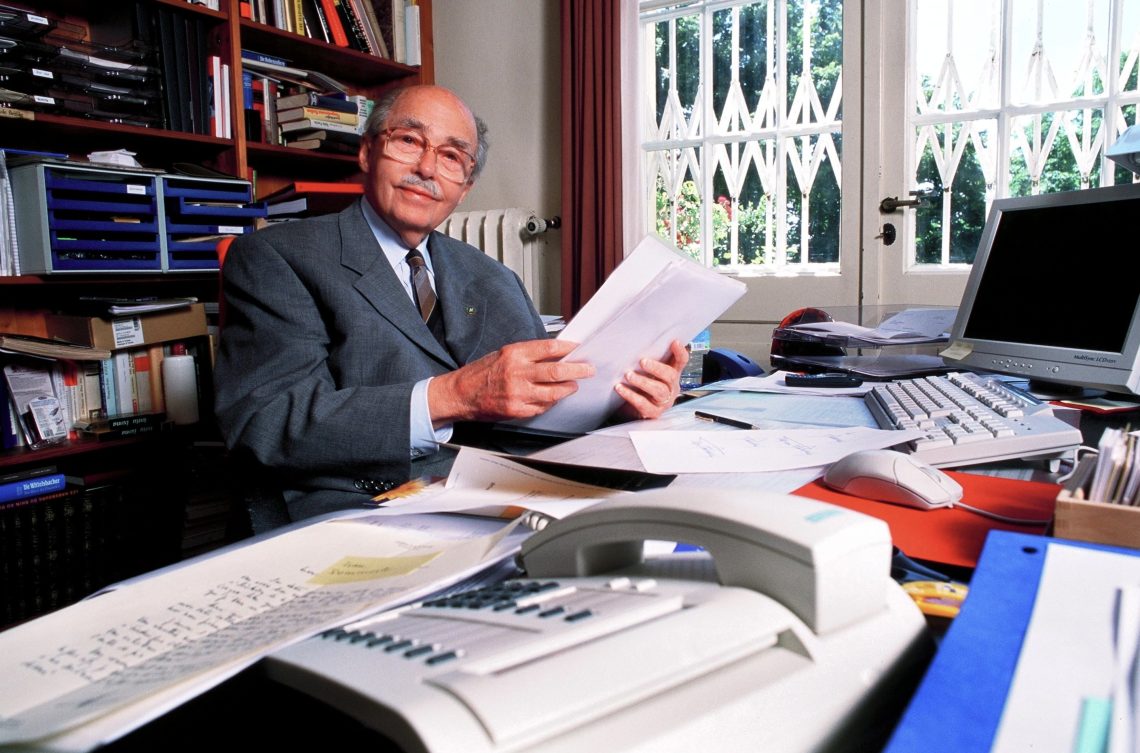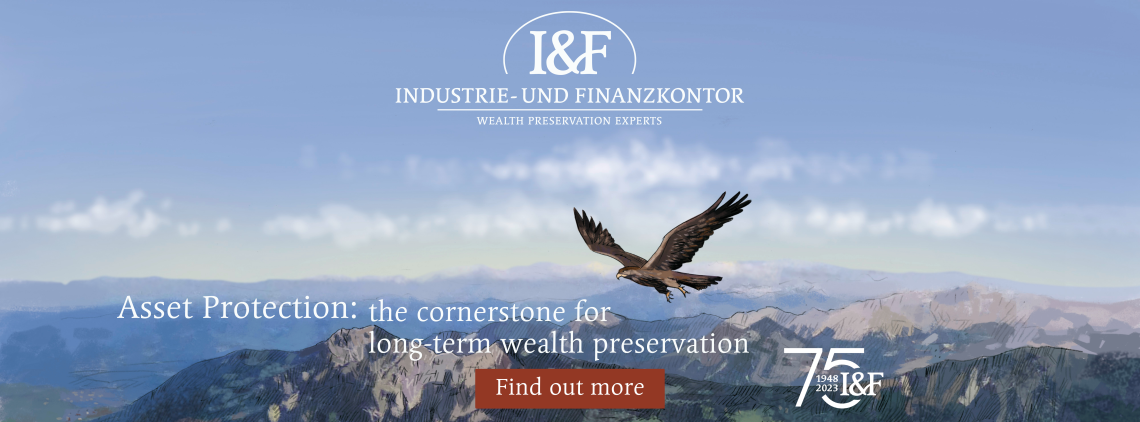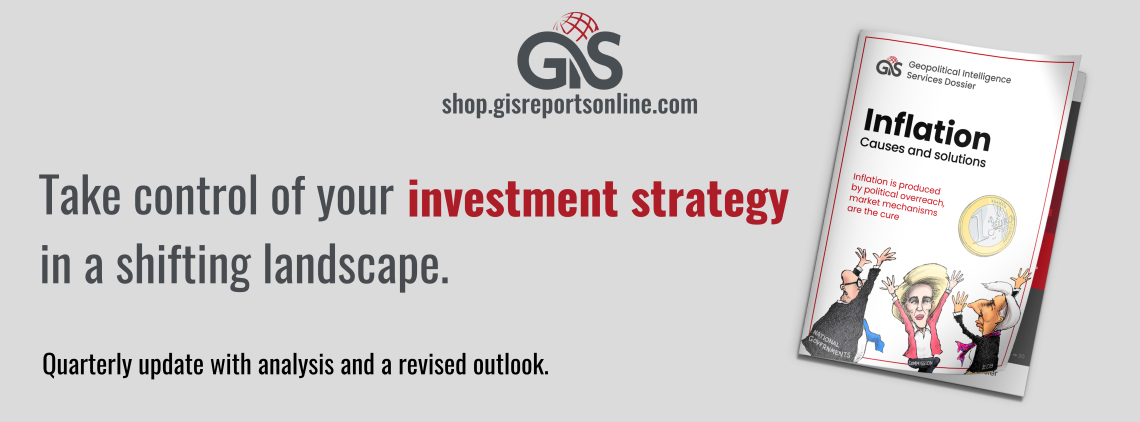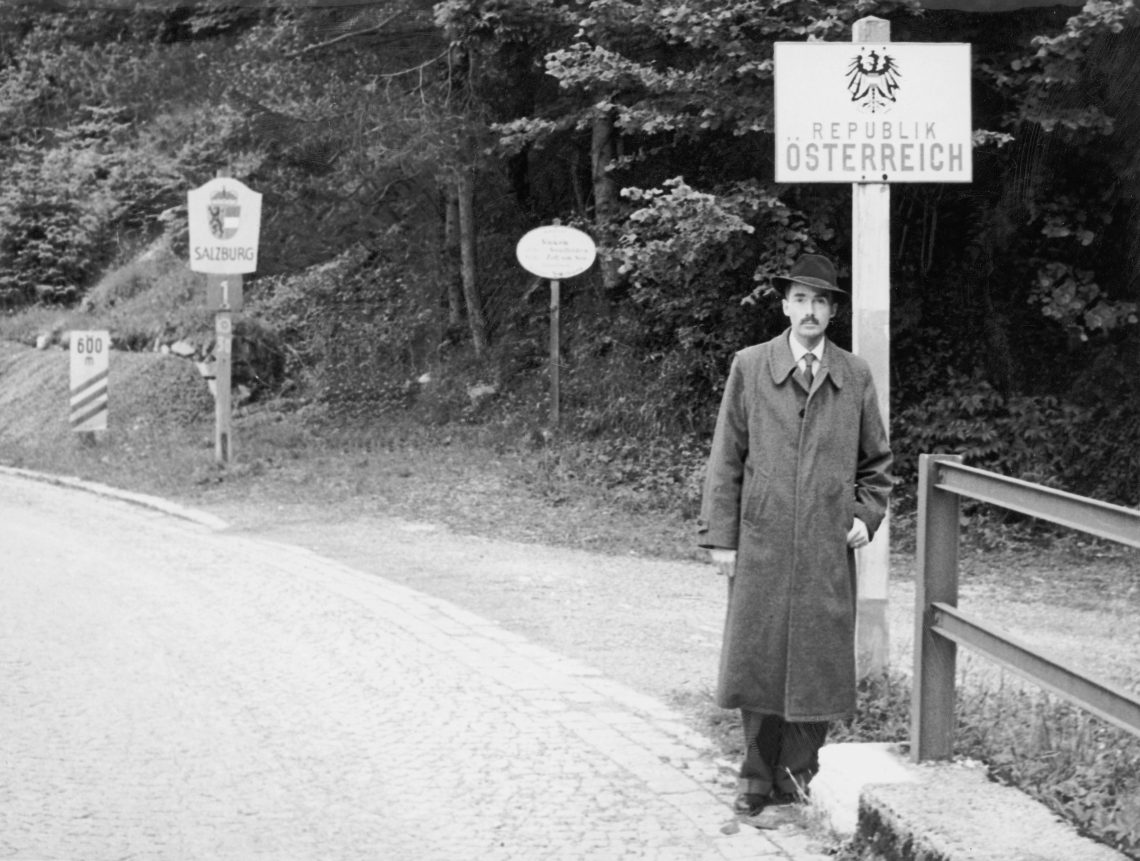The political wisdom of Otto von Habsburg and the crisis in Ukraine
The scion of the House of Habsburg was a geopolitical sage who warned early of Russia’s aggressive strategy and Europe’s need to embrace Ukraine’s aspirations.

In a nutshell
- The Habsburgs ran successful multinational empires for nearly 600 years
- The dynasty’s last heir was a passionate advocate of Europe’s integration
- He saw Ukraine as part of Europe and warned of Russia’s intrusive designs
Otto von Habsburg (1912-2011) – the son of the last Austro-Hungarian emperor – can be described as a man ahead of his time both in his thinking about European unity and alerting the world to the potential creeping absorption by Russia of former Soviet states. He was a prolific writer and activist who labored for the unification of Europe after World War II in many roles as an author, speaker and political advisor. He represented Bavaria for 20 years as one of the most prominent members of the European Parliament.
An outstanding political talent with extensive knowledge, the Archduke developed a profound understanding of geopolitical developments. Open-minded and accepting differing opinions, he never compromised on his core views. However, he always looked to the future and was no hostage to the prevailing thinking and attitudes of the time. This intellectual integrity has rendered timeless value to his writings.
Farsighted publication
Archduke Otto’s last book, published in 2006, warned that Russian imperialism again nurtured the objective of conquering Ukraine, folding it into Russia and using it as a platform for further hostile operations in Europe. For this reason, he urged for Ukraine to be integrated into the European Union.
Reading his warnings today, we see that if European politics and politicians had shared Otto von Habsburg’s wisdom, today’s tragedy in Ukraine could have been avoided. The lucidity of Archduke Otto’s political thinking is shown in this video recording of a 1998 ORF TV discussion between him and then-Austrian Chancellor Viktor Klima. It is in German, with English subtitles.
The paper quoted below, written in German, was published in 2006 together with other works by Archduke Otto under the title: “Unsere Welt ist klein geworden. Die Globalisierung der Politik” (“Our shrunken world: The globalization of politics”) by Amalthea Signum Verlag, Vienna. It was translated into English by Peter Seilern.
In his paper, Archduke Otto wrote:
“All recent events have underlined the importance of a global strategy in current politics. Here again, the weakness of our so-called statesmen comes to the fore as they forget the importance of maps and their potential during decisive moments.
A straight line exists between Kaliningrad on the one side and Tiraspol, the capital of so-called Transnistria [a separatist enclave in Moldova located on the east bank of the Dniester River], on the other. Both towns are at the ends of a pincer, in the middle of which lies Ukraine. As was well known before World War II, when the so-called Polish Corridor was the probable location that would trigger an international war, the same applies today to the two globally strategic towns.

‘Eastern Galicia and Bukovina were areas that represented the engine of European culture and literature. Therefore, Ukraine has acquired a right to Europe that is of political as well as security significance.’
This reflection allows one to recognize the historical significance that Ukraine currently enjoys. This country, long divided, was united at the end of World War II upon the creation of the United Nations.
[Soviet dictator Joseph] Stalin had demanded that Ukraine be recognized as a single state with the right to a delegate and a vote within world organizations. At the time, Western powers, in particular the United States, acceded to this wish by the Kremlin on the erroneous assumption that many things could be promised during the war that, in the end, could be corrected by the ruling economic world power.
Ukraine is a legitimate state. It boasts an admirable population. At the same time, it suffers from two decisive weaknesses: on the one hand, an influence by non-Ukrainian elements; on the other, the difficulty in building its economy. Historically, the Ukrainians were soldiers, civil servants and farmers, while the economy predominantly lay in the hands of Jews. During the course of World War II and the Hitler regime’s crimes, the Jews were nearly exterminated.
Unending Russian imperialism
During the period from Stalin to [Russian President Vladimir] Putin, Russian imperialism has always nurtured the objective of reconquering Ukraine, folding it into Russia and using it for further operations against Poland and other parts of Europe. That turns Ukraine into a critical location within Europe and necessitates its integration into the EU.
This circumstance has not been considered seriously and is, therefore, dangerous. It could still be corrected today were one ready, once and for all, to recognize the need for a genuine European policy rather than one designed to kowtow to the Kremlin.
One must also understand that culturally, historically and spiritually, Ukraine forms part of Europe. Any review of, for example, German-language literature, particularly that of the late 19th and early 20th century, will show how the European spirit flourished in this domain.
Eastern Galicia and Bukovina were areas that represented the engine of European culture and literature. Therefore, Ukraine has acquired a right to Europe that is of political as well as security significance. Ignoring this fact could result in a dramatic error of historic proportions.
The democratic maturity and desire for freedom of the Ukrainian people were made clear in their 2004 struggle for [opposition candidate Viktor] Yushchenko’s victory over [Viktor] Yanukovych, a man with a criminal record and a dependence on Moscow.
Access to the Mediterranean
Considering this, a policy for the future is required. Should things improve in Ukraine, there would still be no assurance that Russia’s imperialistic policies will not soon lead to further crises.
What Mr. Putin and [Ukraine’s former President Leonid] Kuchma had in mind was evident. The massive fraud was designed to produce a Yanukovych victory which would then have been presented as a success for democracy. The maneuver intended to change the political balance in the region, with the next step being the official incorporation of the Republic of Moldova into the Russian system. This would turn the two communist-controlled regions of Transnistria and the Gagauz Republic into official Russian territories, placing the state of Romania in danger.
The sequence of events would enable Moscow to open the door to the Balkans and, through it, pave the way for access to the Mediterranean. The only reason that Stalin failed in this quest was the presence of the strong United States fleet in the Mediterranean. At the time, this was only possible because Cyprus was still safely in Western hands. Today, this would be questionable thanks to the presence on Greek-Cypriot soil of a certain [Efstathios] “Tassos” Papadopoulos, who had bankrolled and advised [former Serbian strongman leader] Slobodan Milosevic. His practical support allowed the Serbs to wage war against Croatia and Bosnia-Herzegovina.

Part of Europe
The victory of Mr. Yushchenko now allows there to be a peaceful zone within the region. Today’s challenge is to prevent a repetition of this past crisis. A sufficient degree of security must be assured for the Ukrainians to enable the country to recover from Mr. Kuchma’s failed policies and place it on an equal footing with the Baltic states. Sadly, NATO membership is not enough, however desirable. An economic upswing is only possible if the population and foreign investors feel secure, as historical experience has taught.
The Kyiv demonstrations have clearly shown that the citizens want their country to become a member of the EU. They have also demonstrated their desire for democracy and are prepared to pay for it – with their lives if there is no other way. Questioning the depth of their democratic wishes now would be a waste of time.
To date, the European Parliament was always the engine of progress while the Council was the brake. This popular forum should be worthy of its past and, in relation to Ukraine, do what is necessary to convey to the people of Europe the purpose of the Ukrainians’ demonstration on the main square braving an icy wind.
However, suppose economic difficulties prevent Ukraine from adhering to the Copenhagen criteria. In that case, an immediate partnership should be granted to Kyiv to lead to the status of a membership candidate. That would show Russia that Ukraine belongs to Europe and that it is not ready to betray a friend and partner because of pressure from Moscow.”

Facts & figures
Archduke Otto
- Otto von Habsburg was the son of the last Austro-Hungarian emperor.
- Born in Austria on November 20, 1912, he died on July 4, 2011.
- Also known by his royal name as Archduke Otto of Austria, he was the eldest son of Charles I, the Emperor of Austria and King of Hungary, and heir to the Austro-Hungarian Empire.
- The realm comprised modern-day Austria, Hungary, Bosnia and Herzegovina, Croatia, the Czech Republic, Slovakia, Slovenia, and parts of Italy, Poland, Romania, Serbia and Ukraine.
- He became crown prince of Austria, Hungary and Bohemia when his father inherited the throne in 1916, during World War I. In 1918, the empire dissolved at the war’s end, and the family was forced into exile.
- After his father died in 1922, the nine-year-old Archduke Otto officially took over as the head of the House of Habsburg.
- Hunted down with a “wanted” poster issued by the German Nazi Party, Otto von Habsburg resisted the Anschluss, the March 1938 annexation of Austria into Hitler’s Reich and warned Western powers before the Munich Agreement in September of the same year that brought portions of Czechoslovakia into Germany’s borders.
- He was active on the Austrian and European political stage from the 1930s. He promoted the cause of the Habsburg restoration, was an early proponent of European integration and was a fierce opponent of Nazism and Communism.
- He tried to negotiate his return to Austria in 1935 and again in 1938 when he wanted to fight the expected invasion by Hitler's troops but could not gather enough support.
- Otto von Habsburg was a member of the European Parliament for the Christian Social Union of Bavaria (CSU) from 1979 to 1999. Also, he was vice president (1957–1973) and president (1973–2004) of the International Paneuropean Union.
- A noted intellectual, he authored several books on historical and political affairs.
- Archduke Otto has been described as one of the “architects of the European idea and European integration.”









